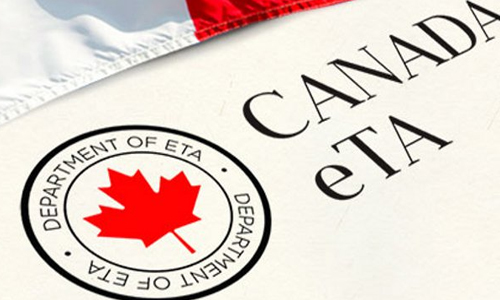Webinar & Report: Everybody Wants to Book Online
The results are in: everybody wants to book everything online.
2 min read
 Cassie Sclafani
:
June 5, 2018
Cassie Sclafani
:
June 5, 2018

In November of 2016, Canada began enforcing a new program that has caught many travelers off guard, including one U.K. comedian who missed his performance because he didn’t have an eTA, or Electronic Travel Authorization document, to even board his plane to Canada. This new measure was put into effect to screen Visa-exempt travelers from more than 50 countries before they land in Canada. The eTA is not a Visa, but rather, is a form of registration required for foreign travelers who normally do not require Visas. However, if the eTA is rejected for some reason, the traveler may apply for a Visa and still travel.
There are many exceptions to this new eTA rule, which is where it gets tricky. Travelers must pay close attention. For example, the travelers now requiring an eTA to land by plane in Canada do not need an eTA if they are entering by land or sea, such as driving in from the U.S.
U.S. citizens do not need an eTA to fly to or transit through a Canadian airport, but lawful permanent residents of the U.S. do need eTAs. Both must carry a valid U.S. passport or, in the case of permanent U.S. residents, a Green Card. Canadian citizens, including dual citizens, must travel with a valid Canadian passport. If they are American-Canadians, the travelers can use either a Canadian or U.S. passport. Some Brazilian citizens can qualify for an eTA and do not require a Visa.
Exceptions to this eTA requirement rule are flight crews, civil aviation inspectors and accident investigators working in Canada, members of Armed Forces carrying out duties in Canada, and Diplomats accredited by Canada. Additionally, foreign nationals with official Canadian documents have specific rules, as do foreign nationals in specific travel situations, such as a flight that must refuel in Canada.
What about other countries? Five other countries have similar measures: Australia (ETA), Hong Kong (PAR or Pre-Arrival Registration), India (e-Visa), Sri Lanka (ETA), and the United States (ESTA, or Electronic System for Travel Authorization). To help clarify, here is a decision matrix as a handy reference:
| Country | Travel Document Required | Is a Visa an alternative if the travel document is refused? | Exceptions to the Rule |
| Canada | eTA | Yes | U.S. citizens, flight crews, civil aviation inspectors, accident investigators working in Canada, some foreign nationals, Armed Forces with duties in Canada |
| Hong Kong | PAR (Pre-arrival Registration) | Yes | Taiwan citizens born in Taiwan or who have entered HK before as Taiwan citizens may enter with their PAR using their Republic of China passport, or by using a Mainland Travel Permit for Taiwan Residents (the mainland China travel document where the Republic of China passport isn’t recognized). |
| India | e-Visa, which has three subcategories: e-Tourist Visa, e-Business Visa, and e-Medical Visa | No, it is one and the same documentation. | Bhutan and Nepal citizens may enter without a passport or visa and stay any length of time; Overseas citizens of India certificate holders, or Persons of India Origin card holders are allowed unlimited entries. Citizens of 113 countries are allowed to obtain an e-Visa, unless the citizen is of Pakistani origin. |
| Sri Lanka | ETA | No, ETA is required prior to getting a Visa on arrival at the entry port, but a few countries are exempted, and a few countries require a visa obtained in advance | Citizens of Maldives, Seychelles and Singapore are exempt from ETAs and may obtain a Visa upon arrival, free of charge |
| United States | ESTA (Electronic System for Travel Authorization) | Yes | Travelers entering the U.S. by land or ferry, Canadian citizens |
Since the rules for each country are complicated and confusing, AmTrav recommends that you allow our representatives to guide you in obtaining the correct travel documentation. We also recommend that you have a current passport, even if you haven’t traveled overseas in a long while and don’t anticipate any trips. If your company suddenly requires you to travel to Sri Lanka, for example, Sri Lanka requires that you have a passport in good standing six months prior to traveling there. This lead time makes travel planning challenging, so trust AmTrav to guide you in documentation preparation. For more information, contact 1-800-795-8371 or visit us at AmTrav.com for live chat.
By: Denise D.

The results are in: everybody wants to book everything online.